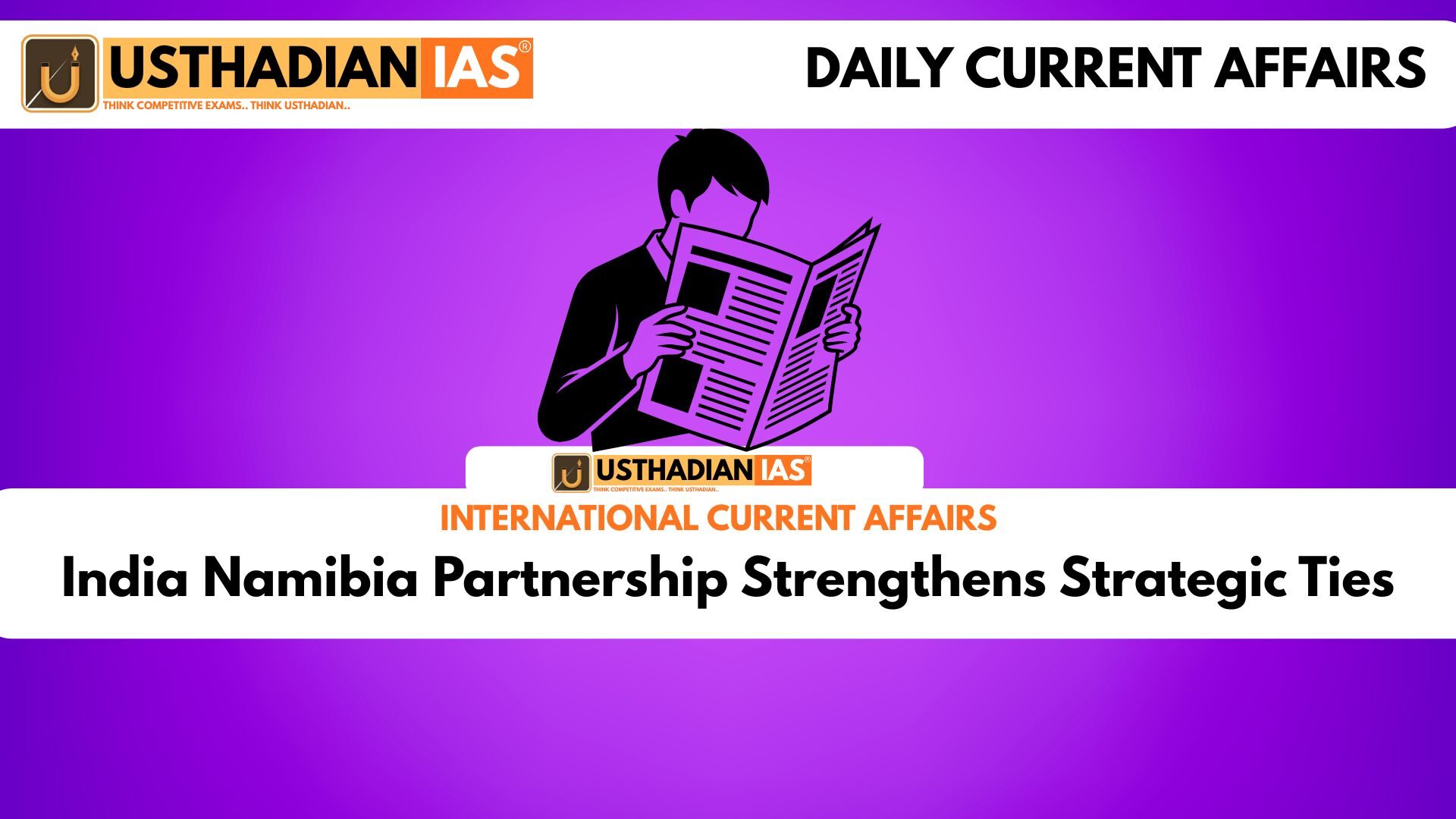Renewing historic ties
India Namibia Partnership Strengthens Strategic Ties: In July 2025, Prime Minister Narendra Modi became the first Indian Prime Minister in nearly three decades to visit Namibia. The visit focused on advancing cooperation in infrastructure, technology, health, and defence. It underlines India’s intent to deepen relations with resource-rich African nations, particularly Namibia.
Shared history of solidarity
India and Namibia’s relationship is built on historic solidarity during the anti-apartheid struggle. In 1946, India was the first country to raise Namibia’s independence at the United Nations. The liberation group SWAPO opened its first embassy in New Delhi in 1986.
India provided military training and supplies to Namibian freedom fighters. After Namibia’s independence in 1990, both nations established formal diplomatic ties with resident embassies.
Static GK fact: SWAPO stands for South West Africa People’s Organisation, which led Namibia’s independence movement.
Deepening development and training ties
India supports Namibia through various training programs like the Indian Technical and Economic Cooperation (ITEC) scheme. Namibian diplomats, health officials, and defence personnel have been trained in India.
India also extended humanitarian help through Covid-19 vaccines and relief aid during natural calamities such as droughts and floods.
Static GK Tip: ITEC is India’s flagship capacity-building programme started in 1964, covering over 160 partner countries.
Trade and economic engagement rising
Namibia holds strategic importance due to its vast deposits of lithium, uranium, rare earths, and zinc, all crucial for India’s energy transition.
In 2023, bilateral trade stood at $654 million, with India exporting pharmaceuticals, machinery, and cereals. Indian investments, mainly in mining and diamond processing, total around $800 million.
The creation of an ‘India Wing’ at the University of Namibia highlights growing educational collaboration.
Wildlife diplomacy makes history
In 2022, a landmark project saw the translocation of cheetahs from Namibia to India. It was the first intercontinental carnivore relocation project globally, showcasing bilateral cooperation in biodiversity and wildlife conservation.
Static GK fact: The cheetahs were relocated to Kuno National Park in Madhya Pradesh, marking a historic reintroduction after extinction in 1952.
Strategic edge over rivals
India’s model of Africa engagement contrasts with China’s debt-heavy investments. While China’s trade with Africa exceeded $200 billion in 2023, India stood at $100 billion, ranking fourth.
India’s approach focuses on sustainable partnerships, capacity-building, and respect for sovereignty.
India plans to double its investments in Africa by 2030, strengthening long-term strategic alignment.
Defence and political alignment
Namibia actively participates in initiatives like AF-INDEX and the India-Africa Defence Dialogue. These platforms reinforce India-Namibia security ties.
The SAGAR initiative – Security and Growth for All in the Region – binds India and African nations under a maritime security framework.
Namibia supports India’s claim for a permanent seat at the UN Security Council, indicating robust political support.
Static Usthadian Current Affairs Table
| Topic | Detail |
| PM Modi’s Namibia Visit | First by an Indian PM in nearly 30 years (July 2025) |
| Historic Support | India raised Namibia’s issue in UN (1946) |
| SWAPO Embassy | Opened in New Delhi in 1986 |
| Bilateral Trade (2023) | $654 million |
| Indian Investment in Namibia | Around $800 million |
| Wildlife Project | Cheetahs translocated from Namibia to India in 2022 |
| Key Resources | Uranium, lithium, rare earths, zinc |
| Strategic Initiative | SAGAR – maritime security with Africa |
| Education Link | ‘India Wing’ at University of Namibia |
| UN Seat Support | Namibia supports India’s permanent UNSC bid |








